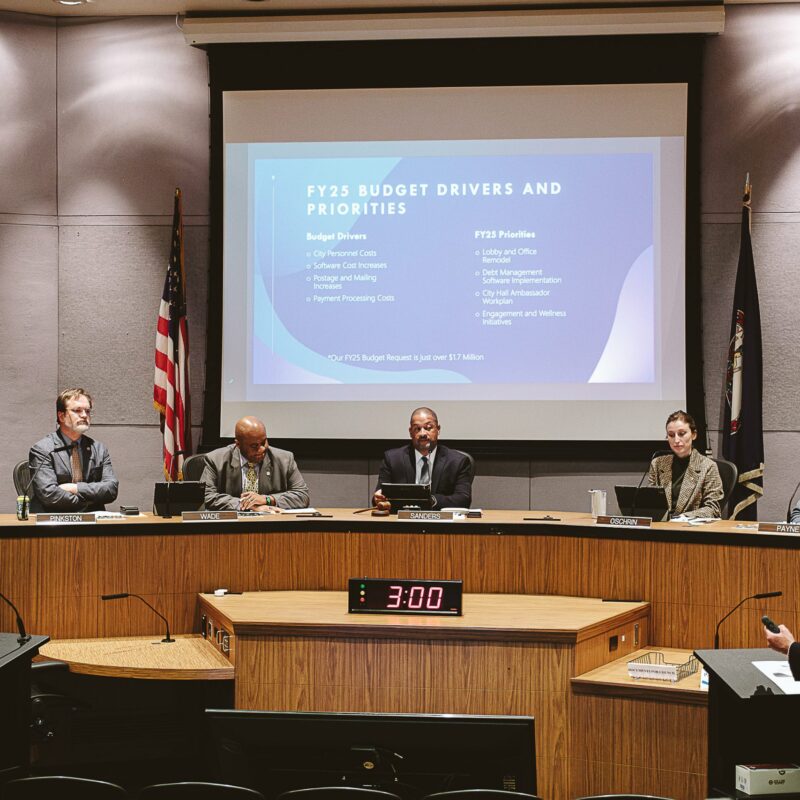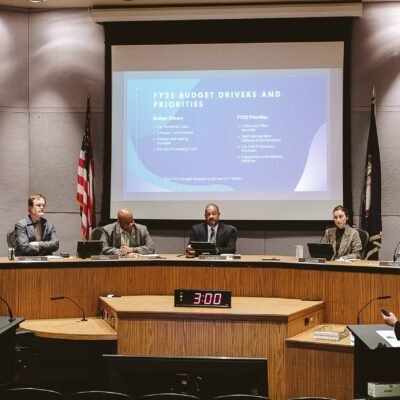Although last week’s statewide elections weren’t quite the epic Republican blowout that many (including Governor Bob McDonnell) predicted, team red still largely ran the table. The election results left the Old Dominion’s dispirited donkeys with no power to shape policy, and little ability to stop Republicans—who now control every single lever of Virginia’s government—from doing as they please.
|
Brian Moran, Democratic Party of Virginia chairman, said no 2011 election would go without a blue candidate. Ultimately, he fielded 54 Dems for 100 contests. |
How did it come to this, you ask? Well, the road to complete political impotence is never an easy one, and the Dems can plausibly claim that the deck was stacked against them from the start. (The House of Delegates has been majority Republican since 2000, after all, and team blue hasn’t controlled Virginia’s holy trinity—governor, lieutenant governor, and attorney general—since Doug Wilder was in office.) But in truth, the Democratic leadership—Senate majority leader (not for long!) Dick Saslaw, ousted House minority leader Ward Armstrong, and Democratic Party of Virginia (DPVA) chair Brian Moran—did almost everything wrong this cycle, and found themselves historically marginalized as a result.
The mistakes were legion, and blame can surely be apportioned all around. But as we have limited space, let’s just list the major screw-ups each principal made, and leave it at that.
Dick Saslaw
As the main architect of the Senate’s decennial redistricting plan, Saslaw failed in both principle and vision. In 2008, the DPVA pledged to “support legislative redistricting that is fair to all citizens, that follows logical geographical and jurisdictional boundaries, and that strives to keep communities of interest intact.” In the real world, Saslaw traded the Senate’s Byzantine partisan redistricting plan for the House of Delegates’ equally gerrymandered district map. Result? An evenly split senate, with Lieutenant Governor Bill Bolling calling the shots, and a laughably lopsided house, with the Republicans now commanding an embarrassingly large two-thirds majority.
Ward Armstrong
Seeing as he was drawn out of his own district by the Republican majority (see above), it’s hard to fault Delegate Armstrong for fighting the good fight. But his decision to go on the offensive by airing television ads that bad-mouthed bedrock Democratic principles (gun control, women’s choice, pollution containment) was not only foolish, but completely antithetical to the idea that Virginia’s two major parties might actually represent competing visions.
Brian Moran
Moran secured the chairmanship of the DPVA by promising that he would recruit Democratic candidates for every available 2011 race. On election day, however, a mere 54 Dems were running for the House of Delegates, which guaranteed the Republicans a minimum of 46 seats out of a possible 100. On the Senate side, incumbent Dem senators faced 16 Republican challengers, while Republican senators only had to worry about three Democratic challengers. In short, Dems had to thread the needle to win, while Republicans had a broad path to victory.
So what’s the final result of this Democratic debacle? Well, for our glorious Commonwealth, only time will tell. But for Governor McDonnell, one thing is certain. As long as he avoids the overreaching hubris of fellow Republican governors John Kasich of Ohio and Paul LePage of Maine (who both had top initiatives repealed at the polls due to voter backlash), his dream headline may yet come to pass: Romney/McDonnell 2012!
Be afraid. Be very afraid.
/Moran.jpg)





